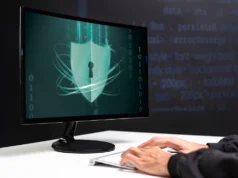Cybersecurity 101 is a term that may make you cringe a little bit. This is because there is such a wide variety of information out there about this subject. The truth is, there is no clear-cut answer to what cybersecurity is. In fact, it is a fairly broad term that encompasses a number of different things, each with the potential to determine your level of protection in the cyber world.
Cybersecurity is a hot topic right now. The threat of hacking and cyberattacks is everywhere and it’s a serious problem, especially since many businesses and individuals do not protect themselves from these attacks. While most people are well aware of the serious risks of cyberattacks, not enough people are willing to pay the price to protect themselves.
Cybercrime has plagued the world for decades, but with cybersecurity becoming more of a concern than ever before, no one can afford to stay ignorant of the threats. Whether you’re a private individual or a business, you deserve to know the basics of cyberattacks so that you can take precautions in the event that you fall victim to one.
The internet has taken the world by storm with its charisma. Once you’re online, you have no idea how time passes. The whole world is going crazy and people are trying to avoid the real world. The internet has so many benefits we can’t even count them.
However, there is a downside that most conventional households and businesses ignore. As you may have guessed, the cyber threat comes from within the tech community. Most ordinary households do not know how to protect their private information and data from the prying eyes of hackers and fraudsters.
Before we connect the dots, let’s take a look at what cyber security and statistics are.
What is cyber security?
Cybersecurity is the term for protecting a system from damage or theft. This can be electronic data, hardware or software. Generally, the term cyber security is associated with software attacks on the Internet. The first cyber attack was launched in 1971 by Bob Thomas, who developed a game that moved between computers.
Impact of cyber threats Statistics
Just look at some statistics that show the impact of cyber threats and the need for cyber security.
- By 2024, cybersecurity spending will reach $133.7 billion (Gartner)
- On average, only 5% of company files are protected (Varonis).
- In the first half of 2019, approximately 4.1 billion records have been breached (by risk).
- Companies reported 62% of phishing and social engineering attacks in 2018 (Cybint Solutions).
- Hackers attack 2,244 times a day – every 39 seconds (University of Maryland)
Types of cyber attacks
There are four types of cyber attacks.
Malware: Malware is the most commonly used term when it comes to cyber attacks. Malware is infected software that causes damage or disrupts the operation of a computer system.
Ransomware: The hacker usually locks the victim’s system or files and demands a ransom for this information.
Social engineering: Social engineering attacks rely on human or social interaction.
Phishing: Phishing is when a hacker uses a fake identity to get someone to provide confidential information, visit a website or download malicious software.
How can I protect myself against cyber attacks?
Use of the security system
Internet service providers are taking steps to protect their customers from cybercrime and security threats. When you sign up with an internet service provider, make sure you have all the necessary safeguards in place to ensure the safety of your personal and private information.
For example, Spectrum’s promotions include triple play offers that include internet, TV and phone, as well as a security package for Windows. The security suite is designed to provide subscribers with maximum protection and keep hackers from damaging or stealing information from your system. Make sure you install a security package before you go online to check your credit card statement, make online purchases or open important files.
Never open suspicious links
As mentioned earlier, hackers try to trick users by sending them malicious links to forward or download files. If you check your spam folder in your inbox, you will find thousands of these emails claiming to make you rich overnight, win millions in prizes, and more.
These emails are misleading and ask the user to click on the link. It is best to check the link before clicking on it. Some letters look like those of an authorized person, an online store or a bank. If you are not sure if the letter is from the right company or person, call them and let them know. You may also report the letter to the appropriate department.
Installing anti-virus software
We are all human and we all make mistakes. Sometimes we unknowingly download harmful files on our computers. In some cases, when we need to transfer files from an external device to our hard drive, some viruses and files are transferred automatically. These files not only damage your system, but also act as malware.
The best way to solve this kind of problem is to install antivirus software. Many antivirus programs are free and can protect your system. But if you buy one as a precautionary measure, you’ll get extra functionality and more security in the long run. Especially if you can access your business data from your home computer.
Logging in with a different password
The best way to protect yourself from cyber attacks is to save your password for each website. Most of us find it quite difficult to remember the passwords of many websites. But with a little effort, you can protect your data and information from hackers.
Make sure you use a secure password when registering on the site. By secure password, we mean using a combination of upper and lower case letters, numbers and special characters. If you have trouble remembering the password for each site, just create a text file and write down the passwords.
The next time you log in, you won’t have to click on Forgot Password. If you can’t figure out your password, use online tools to create strong passwords. Type password generator into the Google search bar and go to one of these password generation tools.
Final judgement
With the increasing vulnerability and threat of cyber attacks, take precautions to protect yourself from malware, phishing and viruses. Remember that large corporations invest billions of dollars in protection against cyber threats. You need to act responsibly and not cry over spilled milk.There’s no end to the number of cyberattacks that could happen. Governments, companies, and even friends are all targets. Cybersecurity protects you when you’re connected to the internet, as well as your devices and information. In this article, we’ll learn what cybersecurity is, and we’ll discuss the best ways to protect yourself from cyberattacks.. Read more about cybersecurity 101 quiz and let us know what you think.
Related Tags:
cybersecurity 101 pdfcybersecurity 101 trainingcybersecurity 101 pptcyber security 101 for dummiescybersecurity 101 quizcybersecurity 101 book,People also search for,Privacy settings,How Search works,Virtual private network,Firewall,Phishing,Malware,Denial‑of… attack,Computer worm,See more,cybersecurity 101 pdf,cybersecurity 101 training,cybersecurity 101 ppt,cyber security 101 for dummies,cybersecurity 101 quiz,cybersecurity 101 book,cybersecurity 101 course,how to protect your privacy from the government








